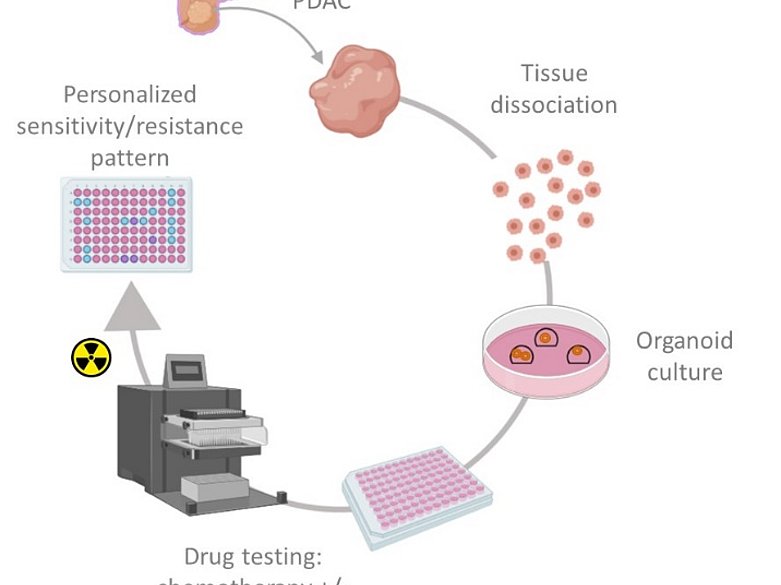Tumor cell resistance
Tumor therapy has achieved enormous progress during the last decade, with new combinations of chemotherapeutic agents and radiotherapy, and recent breakthroughs in immune therapy. If more and more patients can be cured or experience prolonged remission, the amelioration of the prognosis for most solid tumors including gastrointestinal malignancies remains slow and modest. Several factors account for the limited success of anti-cancer therapies, such as late time of diagnosis and non-resectability of the primary tumor or its metastases. Furthermore, the intrinsic ability of cancer cells to adapt rapidly to their environment and to evolve can result in resistance to chemo-, radiation or immune therapy, ultimately leading to tumor relapse. In addition, tumor cells are able to render themselves invisible to and/or resistant against the patient’s own immune system. This immune evasion can occur long before a tumor reaches its clinically detectable size.
The research focus of our group concentrates on the mechanisms of tumor resistance in gastro-intestinal cancers. Our current main projects are:
- Chemo- and radioresistance in pancreatic ductal adenocarcinoma (PDAC):
PDAC remains one of the deadliest cancer subtypes. Its treatment is complicated by the late occurrence of symptoms and the anatomical inaccessibility of tumors or metastases. Several adjuvant and neo-adjuvant treatment regimens are currently in use for PDAC, but their efficacy greatly varies among patients and overall remains moderate. Based on the culture of patient-derived tumor organoids, we aim to develop a screening technique for drug and radiation sensitivity of individual tumors in an effort towards personalized medicine.
- Mechanisms of immune resistance in colorectal carcinoma (CRC):
CRC was the first type of solid cancer for which it was shown that an interferon-g-driven immune response is beneficial for patients’ survival, confirming for the first time the theory of immunosurveillance. In this project, we focus on:
- the mechanisms by which tumor cells can evade this immune response.
- the influence of interferon-g on different intestinal cell compartments (epithelial, vascular…) and its consequences in terms of inflammation and tumor growth.

